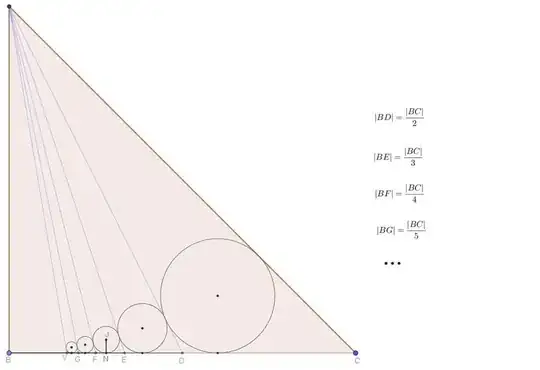$ABC $ is an isosceles right triangle, whose small sides are $1$. I want to find a close form for the sum of the infinite radii of the small circumferences created by the cevians. The numerical value of this sum is $ 0.39709... $
Furthermore what kind of curve pass by the centers of the circles?
